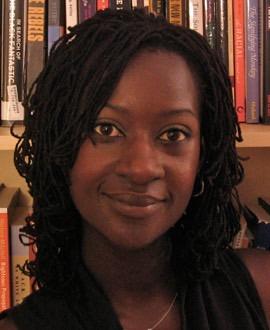Felice Blake
Felice
Felice Blake
HBCU Student Mentor, Past Advisor Board Member
Felice Blake is an Associate Professor with UC Santa Barbara’s English Department. Blake specializes in twentieth-century African American literature, African American studies, and critical analyses of gender and sexuality. Her research interests are situated within the fields of literature, cultural studies, Black studies, and gender studies. Felice Blake’s Black Love, Black Hate: Intimate Antagonisms in African American Literature highlights the pervasive representations of intraracial deceptions, cruelties, and contempt in Black literature. Literary criticism has tended to focus on Black solidarity and the ways that a racially linked fate has compelled Black people to counter notions of Black inferiority with unified notions of community driven by political commitments to creative rehumanization and collective affirmation. Blake shows how fictional depictions of intraracial conflict perform necessary work within the Black community, raising questions about why racial unity is so often established from the top down and how loyalty to Blackness can be manipulated to reinforce deleterious forms of subordination to oppressive gender, sexual, and class norms. Blake is co-editor of Antiracism Inc.: Why the Way We Talk about Racial Justice Matters, which traces the ways people along the political spectrum appropriate, incorporate, and neutralize antiracist discourses to perpetuate injustice. It also examines the ways organizers continue to struggle for racial justice in the context of such appropriations. Antiracism Inc. reveals how antiracist claims can be used to propagate racism, and what we can do about it. While related to colorblind, multicultural, and diversity discourses, the appropriation of antiracist rhetoric as a strategy for advancing neoliberal and neoconservative agendas is a unique phenomenon that requires careful interrogation and analysis. Those who co-opt antiracist language and practice do not necessarily deny racial differences, biases, or inequalities. Instead, by performing themselves conservatively as non-racists or liberally as ‘authentic’ antiracists, they purport to be aligned with racial justice even while advancing the logic and practices of systemic racism. Antiracism Inc., therefore, considers new ways of struggling toward racial justice in a world that constantly steals and misuses radical ideas and practices.
Contact
